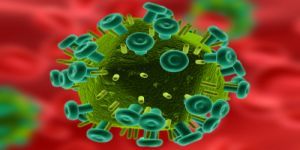Article
Patient with Lupus and HIV Creates Antibodies under Observation
Author(s):
A patient infected with both HIV and lupus still creates broad neutralizing antibodies that react with double stranded DNA, a molecule found in patients who do not have HIV.

After studying a patient with both lupus and HIV, researchers hope to parlay their findings into a vaccine.
Investigators from Duke University School of Medicine found the patient, who had systemic lupus erythematosus (SLE) and chronic HIV, to observe if such a person could make broad neutralizing antibodies. However, they faced a challenge in causing the antibody response because it typically takes 2 years in an HIV patient.
A previous study lead by the scientists concluded that some HIV antibodies cross-react with the body’s tissues in a process they called autoreactivity. In this process, the antibodies are kept in check by the body’s immune tolerance controls, which can regulate production of the antibodies.
Barton F. Haynes, MD, the senior author of the present study published in the Journal of Clinical Investigation, hypothesized that these autoreactive antibodies adapt themselves to look like the body’s tissues, and by doing that, they have found a unique escape from becoming targets. However, in an autoimmune disease such as SLE, researchers expected to see unregulated antibodies due to the defective immune tolerances.
After observing the patient, the researchers found the neutralizing antibody was reacted with molecules in the body called double stranded DNA (dsDNA), which is found in lupus patients who do not have HIV.
“The cross-reactivity of the broad neutralizing antibody with dsDNA was very surprising and provided support for the hypothesis that broad neutralizing antibodies are similar to the autoantibodies that arise in lupus patients who are not infected with HIV,” Mattia Bonsignori, MD, the study’s lead author, said in a statement.
The scientists stressed the results do not mean those with lupus are immune to HIV. Rather, they can create antibodies, though it is too late to fight the infection.





